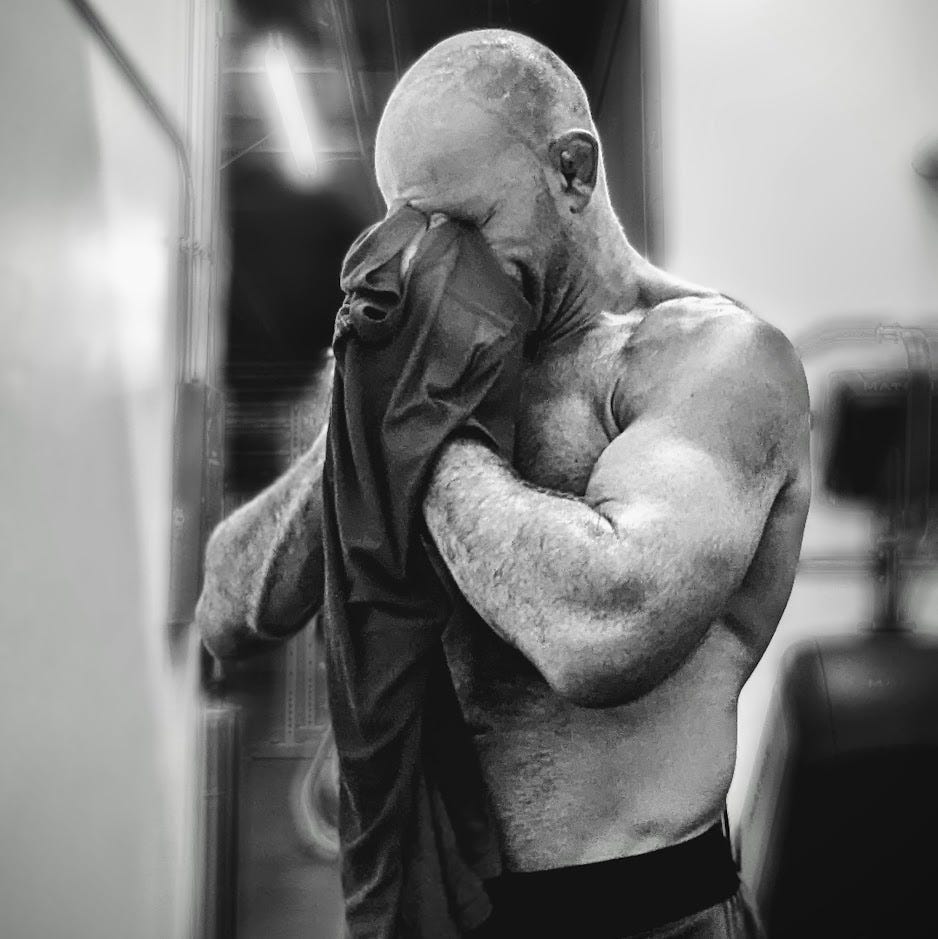"The quality of your life will mirror the quality of the questions you ask yourself."
~ Kobi Yamada , author of Maybe
Talk is cheap. If you ask a question of any doctor, coach, therapist, etc. and they respond with an answer before (first) asking you many more questions, run. I put a poll on Instagram last week about “trendy catch phrases that make me nauseous” and here’s what people voted as the worst:
Self Care (66%)
Optimal (22%)
Thriving (11%)
Evidence Based (11%)
“Self Care” is a phrase I wish I could delete from history. Somehow it has come to mean the literal opposite of what it is supposed to represent. Rather than fill ourselves with purpose and care so that we can go forth better into and better for the world, we fill up on cheap dopamine, convenient truths, and superficial rhetoric.
“Thriving” is interesting because the pundits asserting they’ve achieved such a state seem to cease all critical thinking or asking questions of themselves at about the same time. If curiosity has left your life, I pity you.
Bukowski warned us to “beware the knowers”, yet if you have to ask if you’ve done enough, changed enough, learned enough, if your squat was low enough; then the answer is “no.”
On the heels of those seeking to “thrive” is the chase for what is “optimal.” Whereas “no” above is a complete sentence, “optimal” is a question. For whom? Under what conditions? To what end? At what cost?
Lastly, there are the lifetime-intermediates, those same people who champion “everything in moderation” claim that such behavior will lead to “optimal” results such as one “thriving” or “taking care of themselves.”
“There are no studies showing X,Y,Z” or “The literature says A,B,C” they cry. Olympians and hall-of-fame-ers aren’t in laboratories being studied or on social media parroting the latest trending podcast. They are out risking failure, making mistakes, critically assessing themselves and doing so for 30-years under the guidance of coaches who have done the same for 30-years before them and with dozens of other athletes.
All the peer-reviewed randomized control trials in the world won’t teach you enough to produce the 7 watts / Kg Lance Armstrong held for 30 minutes in ‘98. All your “likes, shares, and subscribers” won’t buy you enough EPO to even come close.
Stop talking. Start asking questions. Start doing. Start thinking. Keep feeling. Keep listening. Eventually, you won’t have to tell anyone because the truth is already known, and anyone worth telling has either asked or already understands.
What I’m Listening To:
There are so many gems in this podcast I had to take a break 30 minutes in. First, it’s important to note that the pinnacle of intensity is built on a foundation of endurance; just like the facet of skill is built on the quality of moving well, which is then pushed through a performance funnel.
Unless your sport is strength, or endurance, each of those things have a limited role in your training. For grappling or MMA, the difficulty is in the middle; which is where our sports exist as “repeat sprint sports.”
Joel aptly points out that you can really only recover from 2 “hard” sessions per week — that’s combined between sport practice and fitness. Joel also defines “conditioning” as one’s “ability to apply their fitness to a given task.”
In other words, if I have great strength, but am a clumsy nontechnical oaf, my “conditioning” for grappling is probably poor. The same is true for the seasoned marathoner once someone is trying to squeeze their neck and disassemble their limbs.
Joel mentions (without references) that strength training benefits (for longevity) plateau at about 36 min / week, and about double that for endurance (Zone 2) training. Again, this varies greatly depending on individual goals and the demands of your sport.
New Subscriber Download:
BJJ Training Journal: The template has been made! Paid subscribers will get a preview of the format in my weekly training logs. I built the template similar to how I structure clinical mental health notes — with [S]ubjective, [O]bective, [A]ssessment, and [P]lan compenents. The template should be transferable to any digital platform (e.g. notetaking app) or printed out or handwritten in a paper notebook. For the official release I’ll have a detailed post with instructions, useful tips, and references.
Updates:
Re-Re-Brand: I apologize for the multiple changes in naming convention. Simple branding a newsletter after my personal handle, “savagezen” didn’t fit the SEO bill. Likewise, starting my own business, Onward, LLC., didn’t quite jive with the personal vibe I’ve tried to create here. Though, obviously there’s plenty of carry-over between my professional and personal roles. Thanks for your patience and readership!
Chat / Discussion Threads: are now live for premium subscribers. For now, these will serve as a more discrete discussion venue for content similar to what I post on social media; without the fear of trolls or outrage porn. My hope is that actually dialogue opens rather than people flagrantly throwing about their opinions.




